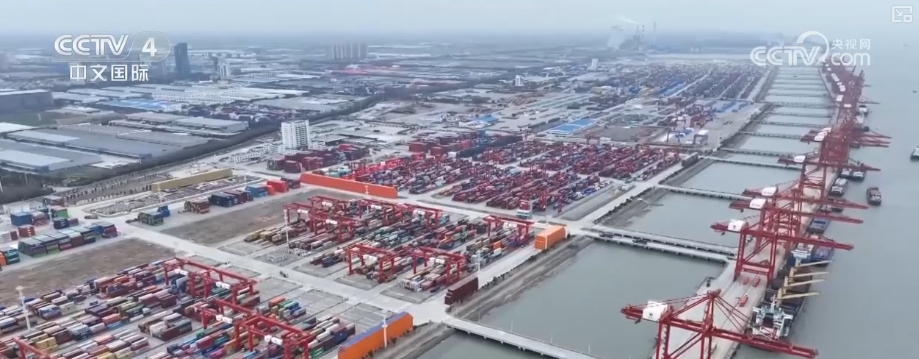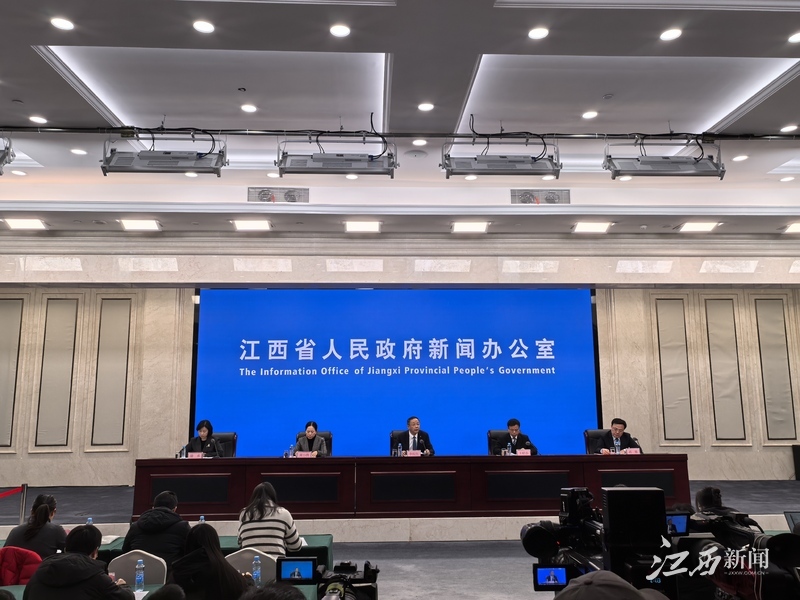Chen Fengxin: Taiwan Is Not Hong Kong, And It Is A Delusion Of Handing Over Military And Diplomatic Power! "Yin And Yang" Mask Of "pseudo-unification"
Chen Fengxin: Taiwan Is Not Hong Kong, And It Is A Delusion Of Handing Over Military And Diplomatic Power! "Yin And Yang" Mask Of "pseudo-unification"
I have said before that many voters in Taiwan support unification. In addition, with the growth of China's strength, some young people who were bewitched by Taiwan's independence thoughts have begun to gradually wake up and reflect, and have a new understanding of cross-strait relations. The ideas and views of people like Chen Fengxin
In recent days, a past story has been revealed by netizens. In 2023, Chen Fengxin, a foreign media person from the Kuomintang, claimed in an interview on a media program that "Taiwan will never become Hong Kong and will not hand over military and diplomatic rights. Even if we talk about unification, it must be carried out on the premise of retaining these powers."
Everyone who often pays attention to cross-strait news knows that she is a spokesperson for the Kuomintang’s foreign media to the press, and she has a rich experience in the news media. She is one of the few media reporters who are independent of political parties but maintain her own position and principles.

Chen Fengxin has always left a good impression on mainland netizens, and is deeply trusted by front-end leader Ma Ying-jeou, and has always been regarded as a "unification faction". But as Chen Fengxin's past was revealed, the beautiful filter that was originally on her was immediately broken.

The mask of "pseudo-unification", the thoughts of the Kuomintang and even neutral factions
However, there are many people like Chen Fengxin in Taiwan. Some of them are ordinary citizens, while others are public figures with a certain popularity.
They are all under the guise of unification, but once they reach the specific unification issue, they will instantly change their faces and make a series of rude and unrealistic demands.
In the final analysis, this situation is still the undying ambitions of many people towards "Taiwan independence", which is also the background of many Kuomintang politicians and neutral people today. This is exactly the same as the "Cai Zhengyuan phenomenon" that people have circulated online before.

However, we can say that these politicians and media people are Yin and Yang people wearing masks, but they must be distinguished from the ordinary people.
The first one here is essentially a thief who is indestructible to the reactionary psychology, while the latter is just a wrong perception caused by being bewitched. This involves the cliché and the most important area since the founding of our country - thought.

In ideological struggle, for a long-term opposition and isolation, once the other party releases a little kindness, the other party will have unrealistic fantasies. We call this idea "opportunism". It is appropriate to use this sentence to describe people like Chen Fengxin.
In addition, the exchanges and communication between the two sides of the Taiwan Strait tend to be upper and middle levels, and it is also some coastal provinces. This is mostly due to the constraints of the communication technology of the times, and the entire generation of people in our country have grown up in that kind of information-blocking space.

Recalling that the popularity of my country's Internet was after 2008. In an era when everyone had to read newspapers and read news, there was almost no understanding of Taiwan's internal situation, which was equivalent to decoupling.
This made many people feel a sense of hazy. After the popularization of television, the cultural influx of various Hong Kong and Taiwan TV series, especially Taiwanese idol campus dramas, has a huge impact on the thoughts of young people.

At that time, there were only a few idol dramas in the mainland, most of which were co-production in the two places, and many of the TV broadcasts were mainly promoted.
Coupled with the popularity of various public intellectuals at that time, a generation of people thought they were behind. This has brought newness to some things in Taiwan and gradually developed into a sought after.
These factors accumulate together, which makes us always have a prayerful inferiority complex towards the thoughts on the island, hoping that the other party can spontaneously agree with unity. For this reason, we constantly release our kindness, pray and even beg the other party to change their minds. But previous Taiwan government leaders ignored it.

However, with the development and popularization of the Internet after 2010, various separatist behaviors of reactionary forces led by the Democratic Progressive Party have become transparent in the multimedia environment. Coupled with the strong rise of China's maritime military strength, many middle-level scholars and intellectuals on the island have shaken. This will lead to the emergence of people like Chen Fengxin and Cai Zhengyuan in a specific public opinion environment.

The imprint left by the inferiority in many of us still exists. Only when we see each other have a positive voice will these people be sought after in the mainland's online public opinion. The fermentation of this phenomenon is based on the complex psychology of our lower class people.
"Since we have the same roots, why bother with each other?" There are both fantasies caused by inferiority complex and our generation's expectations for the warming and unification of cross-strait relations.
However, this is also the weakest line of defense in our minds. Too ideal and inferiority complex ignore the essence of things.

After being sought after by the people on the island, they also have a contradictory mentality. On the one hand, they feel superior to their status and despise the development of the mainland, but they cannot give up the fact that they are descendants of Yan and Huang.
When the economic strength of the two sides of the Taiwan Strait is not equal, they will be afraid of losing their original sense of superiority, which will put forward various conditions for "unification" and make things difficult everywhere.

Beware of the "opportunities" under the separation of speech
It is undeniable that with the increasing improvement of China's international status and strength in recent years, many overseas Chinese and Taiwanese compatriots have supported cross-strait reunification from the bottom of their hearts.
These people include Taiwan’s intellectuals, farmers, and the lower-class people. They may be based on a unified standpoint because of their national identity for the Chinese nation or their pride and yearning for the great achievements in the development of the motherland.
However, everything has two sides, and there are many people who are mixed with fish and mischief. Political speculation was common in the feudal dynasty politics in ancient my country, and it is not uncommon even now.
After all, the calls for "unification factions" within Taiwan have become increasingly high in recent days, or is it because the DPP successfully held power for two consecutive elections, which has greatly suppressed the strength of the Kuomintang.
For this reason, the Kuomintang began to frequently play the political card of "supporting unification" to win public opinion and votes for itself.

I have said before that many voters in Taiwan support unification. In addition, with the growth of China's strength, some young people who were bewitched by Taiwan's independence thoughts have begun to gradually wake up and reflect, and have a new understanding of cross-strait relations. This in turn has led to a growing audience that supports unity and neutrality.
It is precisely because the Kuomintang is attracted by this trend that it will move closer to the direction of cross-strait peace talks and replies relations. Former Taiwanese leader Ma Ying-jeou is one of them.

With this trend, many opportunist elements like Cai Zhengyuan and Chen Fengxin will be born within the Kuomintang. We do not advocate Taiwan independence or unification, as long as we maintain the current status quo on both sides of the Taiwan Strait.
Most of them, as the power faction in Taiwan today, can enjoy the dividends of the times based on their own status and factions, but are afraid of losing their previous status and rights after unification.
The essence of Chen Fengxin's dissenting remarks is to create a good character for Taiwan and the mainland, and to gain public opinion and political reputation for herself. The reason why she did this is because of the complex political ecology within Taiwan. "There are many evil spirits in the temple" is not wrong to describe Taiwan's political circles in this sentence.

Products under the infiltration of "compromise" ideas
Maybe it is because of the age of time. In countless games, most of us have downplayed and forgotten the essence and starting point on the Taiwan issue.
"Unification" is the internal policy that our country needs to complete, and is the root and bottom line for us to start on the Taiwan issue.
While spreading our internal communication, the ideas and views of people like Chen Fengxin will make our thoughts permeable, and the bottom line of tolerance for this matter will continue to lower, thus choosing to compromise.

Our reactionary forces in Taiwan independence are in a life-and-death struggle, and the only ending of this struggle is the only way to win.
People like Tsai Zhengyuan, Ma Ying-jeou also exist within us, and there are quite a few. They may not be greedy for life and death, but their weakness and inferiority complexity in their personality will always make them feel compromised in the struggle. What’s even more terrifying is that these people are mainly young people within us.

"Ginger is still the spicy thing that is old." The young ginger is much more tender in taste, and lacks sufficient political experience and historical precipitation. Coupled with the other party's idea of "not unification or independence", it is like a hazy fog, which easily makes them lose their original direction on the future Taiwan issue. This is the fundamental reason why we are wary of the spread of this phenomenon.

An old man once proposed a new concept of "one country, two systems" to resolve the Taiwan issue in the 1980s. The purpose was to complete the original and clear flow of China's internal thoughts, and it also won the welcome and recognition of the people on both sides of the Taiwan Strait.
But with the emergence of the reactionary forces of "Taiwan independence", this idea has become a bubble. Just imagine if Taiwan can mature and give up unrealistic fantasies, will the situation reach the point where the slogan of "military unification" is now shocking? The bottom line cannot be violated. We will carry out the struggle to the end. Long live China and the Chinese people!
References:
Taiwan’s territorial sovereignty under China’s constitutional norms
Yang Ping. The pain of transformation from the ruling party to the parliamentary Democratic Party—the experience and lessons of the transformation of the Kuomintang in Taiwan. Culture, 2012, (06): 16-19.
Dang Chaosheng, Yang Jinghua. Research on the current situation of youth election participation in Taiwan. Chinese Youth Social Sciences, 2017, 36(03):121-127.DOI:10.16034/ki.10-1318/c.2017.03.018.
Zhang Huajun. We must be vigilant about leading the "maintaining the status quo" astray. Unified Forum, 1998, (06): 57-58.
Ren Zuyun. The origin of cross-strait relations and their current status. Xiangchao (second half of the month), 2012, (08):4-5.
Zhang Jinshan, Wang Huihui, Hu Yan. Dimensions of power: the current situation and future construction of cross-strait political discourse. Journal of Guangxi Normal University (Philosophy and Social Sciences Edition), 2018, 54(06): 67-73.DOI: 10.16088/j.issn.1001-6597.2018.06.009.





